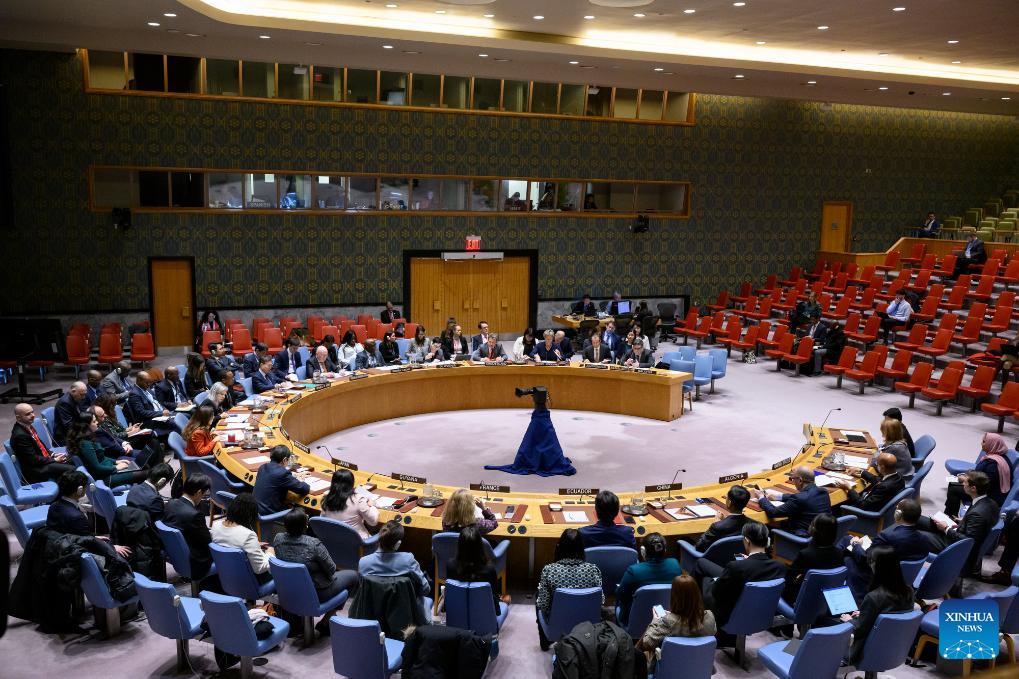
A UN Security Council briefing on the situation of Rakhine State of Myanmar is held at the UN headquarters in New York, on April 4, 2024. China on Thursday pledged to continue to play "a constructive role" in stabilizing the situation on the ground as soon as possible in Myanmar's Rakhine State, amidst the recent renewal of fighting. [Photo by Loey Felipe/UN/Handout via Xinhua]
UNITED NATIONS, April 4 (Xinhua) -- China on Thursday pledged to continue to play "a constructive role" in stabilizing the situation on the ground as soon as possible in Myanmar's Rakhine State, amidst the recent renewal of fighting.
Addressing the UN Security Council briefing on the situation of Rakhine State of Myanmar, Geng Shuang, China's deputy permanent representative to the United Nations, detailed China's stance on the ongoing conflict in Myanmar's Rakhine State.
With recent escalations drawing international concern, Geng emphasized the conflict as Myanmar's internal affair, urging the global community to respect Myanmar's sovereignty and facilitate dialogue among the involved parties.
"As a friendly neighbor of Myanmar, China has been closely following the developments in the Rakhine State," Geng stated, highlighting China's dedication to promoting peace through "multiple channels."
A Chinese delegation is currently in Myanmar to mediate and communicate, demonstrating China's proactive approach to resolving the conflict, said the ambassador.
Geng reiterated China's deep connection with Myanmar and its commitment to supporting Myanmar's stability, development, and well-being. "China's policy of friendship with Myanmar extends to all people of Myanmar," he affirmed, promising continued assistance and "a constructive role" in seeking a peaceful resolution to the crisis in the Rakhine State.
The ambassador expressed appreciation for Bangladesh's support to refugees from the Rakhine State since 2017.
Recognizing the challenges in repatriation exacerbated by the conflict's resurgence, Geng praised the foundational work by Myanmar and Bangladesh, supported by regional countries and the UN, to facilitate the return of displaced individuals.
"China has been actively undertaking diplomatic efforts to facilitate repatriation," Geng mentioned, reaffirming China's commitment to assist both nations in achieving an early resolution to the repatriation issue.
Highlighting China's long-standing relationship with both Myanmar and Bangladesh, Geng voiced opposition to proposed sanctions on Myanmar, arguing they would "only aggravate hostilities and confrontation." Instead, he advocated for dialogue, mutual understanding, and trust-building measures to create a conducive environment for repatriation and conflict resolution.
Geng also pointed out the essential role of the Association of Southeast Asian Nations (ASEAN) in the process, commending its positive progress in engaging Myanmar and providing humanitarian aid.
He urged continued international support for ASEAN's leadership, emphasizing respect for the "ASEAN way" of solidarity and dialogue.

 中文
中文



